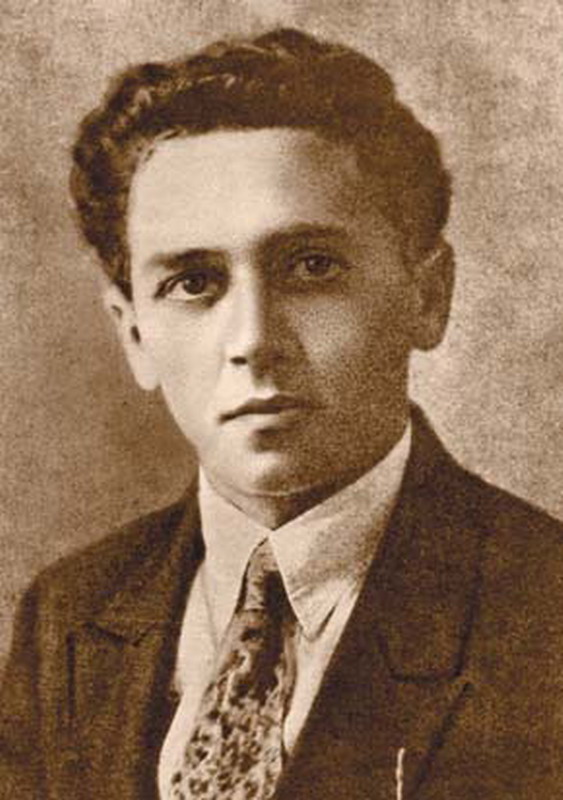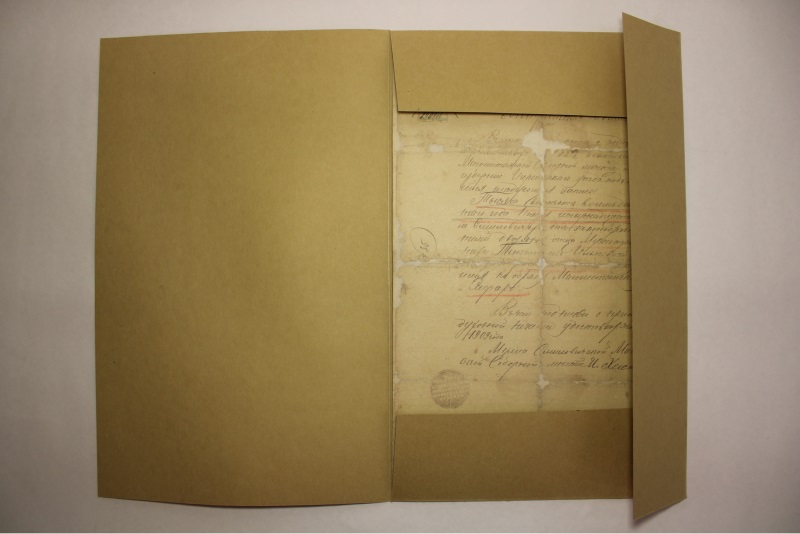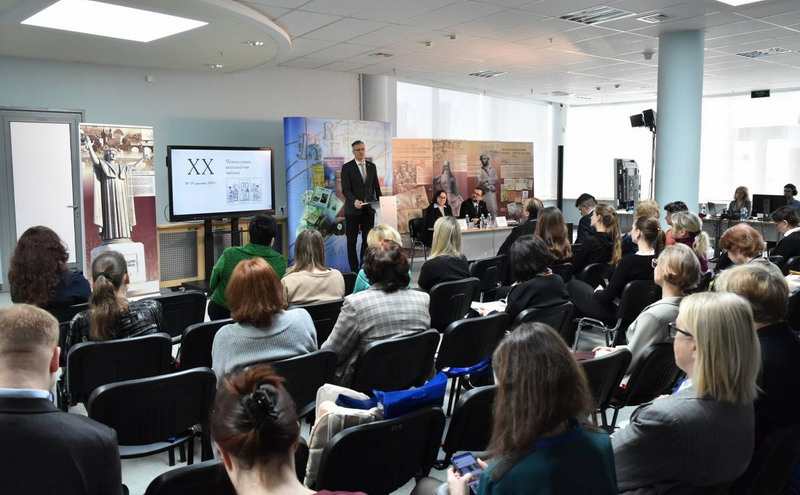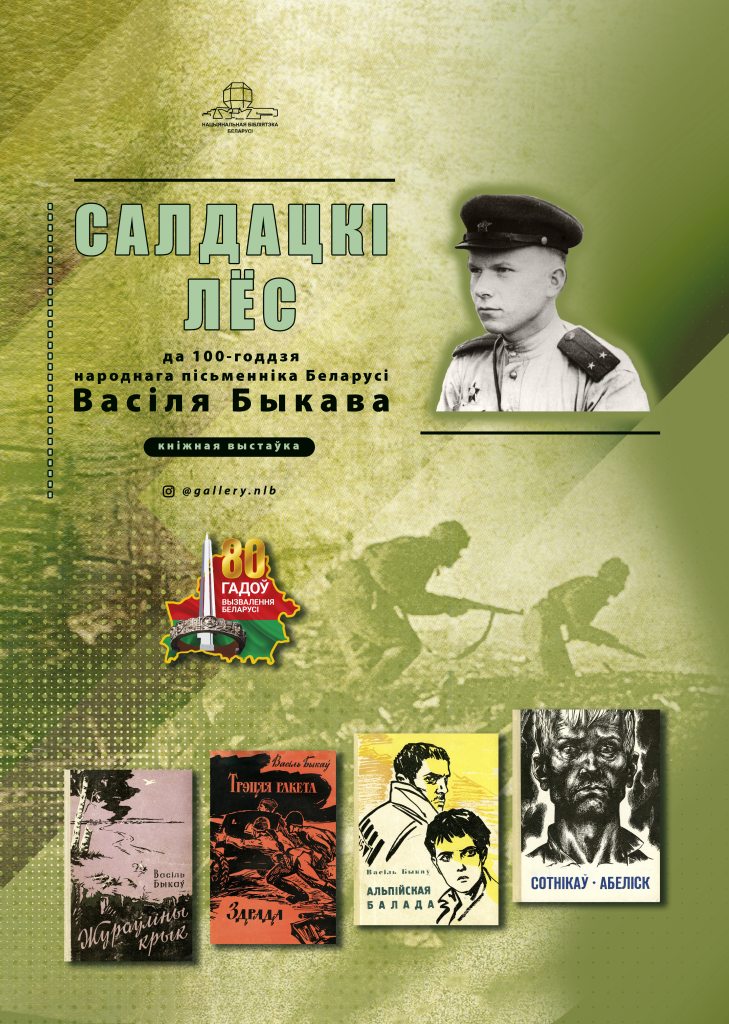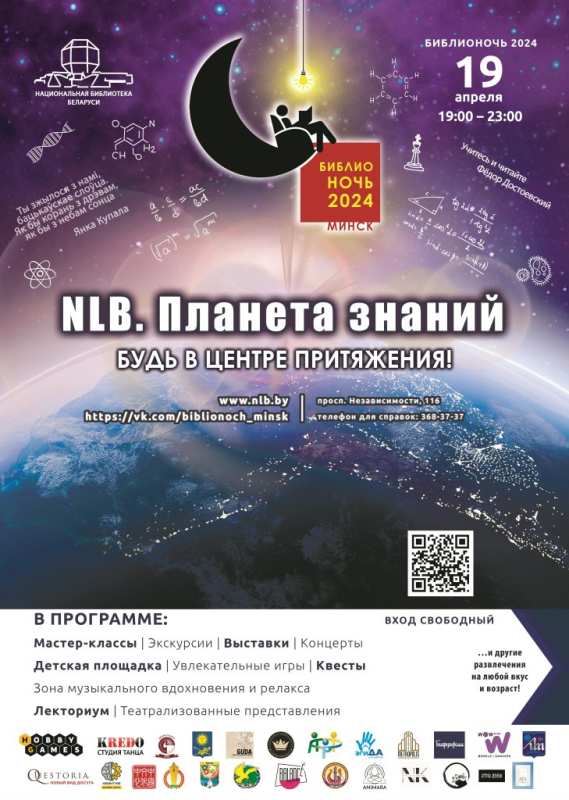November 7 marks the 125th anniversary of the birth of the famous poet, prose writer and playwright, cultural and public figure of Belarus Mikhas Charot (1896–1937 or 1938).
Mikhas Charot (real name Mikhail Kudzielka) was born in the village of Rudziensk, Ihumen district, Minsk province (now it's an urban settlement of the Pukhavichy district of the Minsk region) in a family of landless peasants.
His fate is in many ways typical of that generation of writers and poets who came to literature immediately after the revolution. In 1917, Mikhas Charot graduated from the Maladziechna Teachers' Seminary and was soon mobilized into the army. In the spring of 1918, he returned to Minsk, worked as a teacher in a Belarusian school. He studied at the Pedagogical Faculty of the Belarusian State University (now the Belarusian State Pedagogical University named after Maxim Tank), and after that since 1924 – at the State Institute of Journalism in Moscow. In the 1920s, Charot was one of the active organizers and leaders of the literary movement in Belarus: he was staff member and in 1925–1929 editor of "Sovetskaya Belorussiya" newspaper, took part in the literary association "Maladnyak" (headed it from 1923), worked for a while in "Polymia" magazine, later joined BelAPP, was Head of the Literary Department of the BSSR State Publishing House, consultant to the Union of Belarusian Writers. Besides, he contributed much to the cultural and national movement: he sang in Terauski's choir at the Belarusian Hatka (he had a beautiful baritone), was the chairperson of the theatrical group "Maladzik" and of the Minsk Society of the Workers of Belarusian Art, was a member of Uladzislau Halubok's troupe.
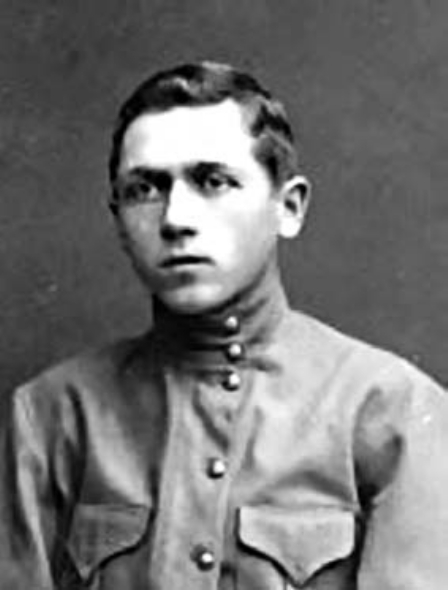
He began writing in his teens. Such poets as Maksim Bahdanovich, Ciotka, Janka Kupala, and Jakub Kolas inspired Charot’s early works. After 1921, revolutionary and proletarian motifs became dominant in his oeuvre, as is evident from the poetry collections "Zaviruha (Blizzard)" (1922), "Selected Poems" (1925), "Soniechny Pakhod (Solar March)" (1929), the heroic-romantic poem "Basyja na Vohnishchy (Barefoot in the Fire)" (1922) and "Maryna" (1926), the fantasy poem "Chyrvanakryly Viashchun (The Red-Winged Sorcerer)" (1923).
Mikhas Charot was a master of witty and original phrases. Even the titles of his works are examples of smart speech units. As a poet and publicist, Charot often used socio-political vocabulary and phraseology in his writings. As a lyricist and romantic poet, he made use of the expressive means of Belarusian folklore and the lively spoken language of the Belarusians.
A unique phenomenon in the prose of Charot was the novel "Svinapas (Swineherd)" (1923–1924). The first Belarusian feature film, "Tale of the Woods" (directed by Jury Tarych) of 1926, was based on it. He compiled all his stories in the collections "Viesnahod" (1924) and "Selected Stories" (1926).
Charot made his Belarusian Soviet playwright career from the theatre stage. He wrote and published a number of plays, the most popular of which are the comedy "A Dream in the Swamp, the dramatic poem "Mikita's Bast Shoe" and the folk drama "Na kupalie (On Kupala Night)". The latter was successfully staged by Belarusian Drama Theatre-1 in Moscow, at the All-Union Agricultural Exhibition called "The Flower of Happiness" in August 1923. The same play inspired composer Aliaksej Turankou to create the opera "Kvietka Shchascia (The Flower of Happiness)", which was triumphantly performed at the Belarusian Art Decade in Moscow in 1940.
Well-known literary critics Mikhas Jarosh, Nil Hilievich, I. Chyhryn noted the individuality, originality and polyphonic nature of Mikhas Charot's literary art. Throughout his life, he had been praising the Belarusian people and local nature, passionately and sincerely calling for "the spring of life", for inspired and creative work.
On January 24, 1937, Mikhas Charot was arrested and soon executed (October 29, 1937 or December 14, 1938 – the exact date is unknown). Rehabilitated in 1956. Streets in Minsk, Hrodna, Maladziechna and Rudziensk are named after him.
You can find out more about Mihas Charot's writings, critical and biographical literature in the electronic catalogue of the National Library of Belarus. Biographical material is also posted in the online encyclopedia “Belarus in Persons and Events”.
Bibliology Research Department

